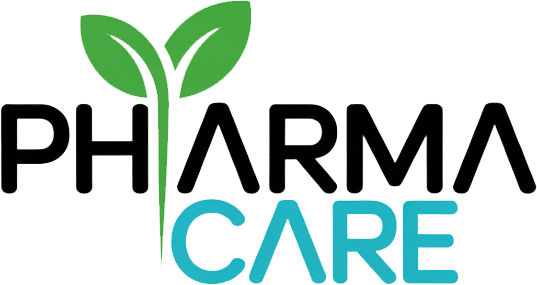Prozac is one of the most commonly prescribed antidepressants in the world. Many people ask “What is Prozac?” and-“What does Prozac do?”Prozac is the trade name for a drug whose active ingredient is fluoxetine. This drug belongs to the SSRI (selective serotonin reuptake inhibitors) group and is also known as Prism (Prism drug). In the comprehensive guide below, we will examine how fluoxetine works, what are the accepted doses, what side effects may occur, and how to deal with discontinuation of treatment. We will also address frequently asked questions and concepts such as “Prozac dosage” and “Fluoxetine dosage,” and see how this drug may help treat anxiety, OCD, depression, and a variety of other disorders.
1. What is Prozac? (What is Prozac)
Prozac is the trade name for an old antidepressant drug, based on fluoxetine. Many people also call the drug Prozac. prism Or simply Fluoxetine. Since the 1980s, Prozac has become one of the most well-known medications in the mental health field. The drug is widely used to treat a variety of disorders, including depression, anxiety, OCD, and even eating disorders.
The question “What is Prozac?” It also involves understanding what it does: Prozac changes the balance of serotonin in the brain, which can relieve symptoms of depression and anxiety. It is considered to have a good safety profile and has been well-studied over the years. However, it is important to get a medical prescription and proper monitoring before starting to take it.
2. How does fluoxetine work? (What is Fluoxetine)
Fluoxetine belongs to the SSRI class. This means that these drugs selectively inhibit the reuptake of serotonin in the brain. Serotonin is an important neurotransmitter that affects mood, appetite, sleep, and other aspects of mental health.
When serotonin is not quickly reabsorbed into the nerve cells, an increased amount of it remains in the interneuronal space. This creates an antidepressant effect that helps reduce feelings of depression, sadness, and anxiety. However, the effect is not immediate. Many ask "How long does fluoxetine take to work?" – It usually takes two to four weeks to notice initial improvement.
3. Indications and main uses
Fluoxetine (Fluoxetine for depression) is approved for the treatment of a wide range of mental disorders, including:
Major depression (Prozac for depression)
Prozac is primarily prescribed for patients suffering from major depression, which is characterized by prolonged feelings of sadness, loss of interest in daily activities, and decreased overall functioning. This medication helps regulate serotonin levels, thereby improving mood, energy, and hope.
Anxiety (Prozac for anxiety, Fluoxetine for anxiety)
In addition to treating depression, Prozac is also considered effective in anxiety disorders, such as generalized anxiety disorder (GAD) and social anxiety disorder. It may reduce persistent negative thoughts and relieve feelings of internal tension. Some people are looking for a solution to anxiety and ask about “Prozac for anxiety”And this is definitely one of the common indications.
OCD (Prozac for OCD, Fluoxetine for OCD)
Prozac helps patients with obsessive-compulsive disorder (OCD), where intrusive thoughts and compulsive behaviors reduce quality of life. Treatment with Fluoxetine for OCD results in a gradual decrease in the intensity of the obsessive-compulsive symptoms.
Panic disorder
Many people experience panic attacks, which are characterized by intense feelings of fear, rapid heartbeat, and sweating. Prozac helps balance the mechanisms in the brain responsible for this feeling of panic, thereby reducing the frequency and intensity of the attacks.
Bulimia nervosa
Treatment for bulimia nervosa may include Prozac, which helps reduce the urge to vomit and binge eating. The medication improves emotional well-being and helps reduce repeated binge-purging cycles.
PMDD (Prozac for PMDD, Fluoxetine for PMS)
Women with premenstrual dysphoric disorder (PMDD) experience extreme mood swings, irritability, and anxiety in the week before their period. Studies show that Fluoxetine for PMS or Prozac for PMDD can relieve the severe physical and emotional symptoms.
ADHD (Fluoxetine for ADHD)
Although the common treatment for ADHD involves stimulant medications (such as Ritalin), there are times when a doctor may prescribe fluoxetine as an adjunct or alternative, especially when significant depressive or anxiety symptoms are involved. However, this use is considered off-label.
4. Prozac dosage and instructions for taking
Common dosages (Prism 20 mg and other versions)
Fluoxetine is commonly available in 10 mg, 20 mg, and 40 mg capsules. Prism 20 mg (or Prozac 20 mg) is the most common dosage. Some people will start with 10 mg to reduce side effects in the first few weeks, and others will need higher doses depending on their clinical condition. The usual Prism dosage is 20–40 mg per day, but the range may be wider.
Starting dose and maximum dose (Prozac dosage, Prism dosage)
Some doctors will also start with 20 mg per day. The patient may then increase to 40 mg depending on the improvement in their condition. Prozac maximum dose can reach 60 mg in exceptional cases (such as resistant OCD). Continuous medical monitoring is required, as the decision to increase the dose depends on the patient's response.
When to take it? Morning or evening?
Prozac (or Prism) is characterized by a long duration of action. Patients tend to take it in the morning to avoid insomnia. However, if someone feels tired during the day, they can consult their doctor about changing the time of taking it.
How long does Prozac take to work?
The question “How long does Prozac take to work?” is a common one. Typically, initial improvement may occur after two to four weeks. However, full effect may take six to eight weeks. Patience is essential, as it takes time for the body to adjust to the new serotonin levels.
5. Prozac side effects (Prozac side effects, Fluoxetine side effects, Prozac side effects)
Common side effects (fluoxetine side effects)
Many patients experience nausea, diarrhea, mild irritability, or headaches at the beginning of treatment. Sometimes, slight tremors in the hands, increased sweating, or sleep disturbances occur. These effects usually subside within a few weeks. In addition, Prism side effects are very similar to those of Prozac, since it is the same active ingredient.
More serious side effects
Rarely, Prozac can cause increased anxiety or irritability at the beginning of treatment. Serotonin syndrome is a serious, but relatively rare, side effect. It can occur in combination with other drugs (such as tramadol or MAOI drugs). In this situation, the patient may experience high fever, tremors, sweating, rapid heart rate, and even confusion. If serotonin syndrome is suspected, you should seek immediate medical attention.
Effect on weight (Does Prozac make you fat? Prozac weight loss, Prozac and weight loss, Fluoxetine for weight loss)
The question “Does Prozac make you fat?” Often increases. In many cases, Prozac does not actually cause significant weight gain. Some patients experience a slight loss (Prozac weight loss), mainly due to decreased appetite or nausea at first. Others feel no change at all. It is important to note that each person responds differently, so there is no uniform answer. Some people also report a noticeable change in Prozac and weight loss, while others do not experience a noticeable change.
6. Withdrawal and cessation of treatment (Prozac withdrawal)
Is Prozac addictive? (Prozac addiction)
Prozac addiction is not defined as a classic phenomenon, as the drug does not create physiological dependence like stimulants or opiates. However, there is a phenomenon called "SSRI discontinuation syndrome" (Prozac withdrawal) when treatment is stopped abruptly. Therefore, gradual withdrawal is necessary.
Withdrawal symptoms and tapering
Stopping abruptly can lead to symptoms such as dizziness, nausea, brain zaps, and increased anxiety. Because Prozac has a long half-life, withdrawal symptoms are usually milder than other SSRIs. However, it is important to taper off gradually and under medical supervision.
7. Prozac and other medications
Prozac and alcohol
The term “Prozac and alcohol” refers to a rather problematic combination. Combining Prozac with alcohol can increase the risk of dizziness, lightheadedness, and unexpected reactions. In addition, alcohol may negatively affect the recovery process from depression or anxiety. Therefore, doctors recommend avoiding drinking alcohol during treatment or significantly reducing it.
Interactions with other medications
Prozac may interact with other medications such as benzodiazepines (e.g., Clonazepam, Viagra), tramadol, migraine medications (triptans), and others. These combinations increase the risk of side effects, including serotonin syndrome. Before starting treatment with Prozac, it is important to inform your doctor about all medications you are taking, including nutritional supplements.
8. Prozac during pregnancy, Prism during pregnancy and breastfeeding (Is Prozac dangerous?)
“Prozac during pregnancy” and “Prism during pregnancy” are sensitive topics. Fluoxetine may cross the placenta, and there may be some risks to the fetus. However, studies have found that the risk is limited, and in many cases the benefit of treating depression or anxiety outweighs the potential risk. In any case, the decision should be made together with a doctor or specialist psychiatrist. The issue should also be examined during breastfeeding, because small amounts of fluoxetine may pass into breast milk.
The question “Is Prozac dangerous?” requires a balanced answer. The drug is generally safe, but improper use, overdose, or problematic combinations can be dangerous. It is important to follow your doctor’s instructions and maintain regular follow-up.
9. Drugs similar to Prozac
Similar drugs to Prozac include Cipralex (escitalopram), Lustral (sertraline), and Seroxat (paroxetine). All belong to the SSRI family. Each works slightly differently in terms of side effects and physician preference. Cipralex may cause fewer sleep disturbances but weight gain. Lustral is effective in reducing anxiety, but may cause headaches. The right choice depends on the patient and their medical history.
10. Frequently Asked Questions (FAQ)
Question: What is the difference between Prozac and Prism?
answerProzac and Prisma contain the same active ingredient – fluoxetine. They are different trade names. The treatment effect is similar and they are considered equivalent substitutes.
Question: How does Prozac affect sexual function?
answer: Like other SSRIs, Prozac may cause decreased libido or difficulty reaching orgasm. Some patients do not experience this, but others experience the side effect. If this persists for a long time, it is recommended to talk to a doctor about possible adjustments.
Question: What is generic Prozac?
answer"General Prozac" refers to the way in which a general health insurance company or any other health insurance company provides the patient with information and this medication. Most often, the health insurance companies offer guidance or brochures, explaining to the patient the details of taking Prozac, possible side effects, and more.
Question: Is it mandatory to have blood tests done before starting treatment?
answer: There is no blanket requirement. However, doctors may request general tests to ensure there are no other medical problems. Sometimes liver and kidney function will be checked, and in the case of heart problems – appropriate tests.
Question: How does detox work?
answer: Discontinuing treatment with Prozac or Prism should be done gradually. The dosage should be reduced over several weeks or more, as directed by your doctor. This will avoid unpleasant withdrawal symptoms.
Question: Can Prozac help without other mental health treatment?
answerA: Yes, Prozac alone can improve depression and anxiety. However, combining it with psychological therapy (e.g. CBT) contributes to more significant and faster improvement.
Question: How do you know if the dosage is sufficient?
answer: If there is no improvement after six to eight weeks, it is a good idea to return to your doctor. The dosage may need to be increased or the medication changed.
Question: Is it permissible to drive while taking Prozac?
answerA: In most cases, yes. However, at the beginning of treatment, it is recommended to check the effect on alertness and concentration. If you feel dizzy or excessively tired, it is recommended to avoid driving until the condition stabilizes.
Question: Is it possible to combine fluoxetine with medicinal herbs?
answer: There are herbs like St. John's Wort that also affect serotonin. An uncontrolled combination may cause serotonin syndrome. Therefore, it is important to consult a doctor before combining supplements.
Question: Is there such a thing as Fluoxetine for weight loss?
answer: Officially, Prozac is not intended for weight loss. However, some patients experience a decrease in appetite or weight (Fluoxetine for weight loss). It is important not to use it for this purpose alone.
Question: How long does it take for the body to get used to the side effects?
answer: Usually two to four weeks. If after this time a particular side effect remains severe, it is worth consulting with the doctor again.
Question: How does Prism for Anxiety work?
answer: Prism, which is identical to Prozac, works to balance serotonin levels in the brain and reduces symptoms of general anxiety and social anxiety. Improvement may be gradual.
11. External links
- Mayo Clinic website – Information about Fluoxetine
(A reputable source in English that presents medical information about fluoxetine, including side effects and indications for use) - MedlinePlus – Prozac Review
(Reliable source from the US National Library of Medicine, with detailed explanations about Prozac)
12. Summary
Prozac, Fluoxetine, and Prism are different names for the same active ingredient. This medication increases serotonin levels in the brain. It is used to treat major depression, anxiety disorders, OCD, bulimia nervosa, and PMDD. There are also cases of Fluoxetine for ADHD, although this is not the main use.
The common dosage is 20 mg per day (Prism 20 mg or Prozac 20 mg), but different doses may be used depending on the medical condition. Side effects may include nausea, diarrhea, irritability, sexual dysfunction, and some weight changes. Withdrawal from Prozac may be easier due to its long half-life, but a gradual taper is still required.
Generic Prozac is no different from other medications, other than the fact that it may be provided by your health insurance company or the pharmacy under its responsibility. If you are concerned about “Is Prozac dangerous?” – the answer is usually no, as long as you follow your doctor’s instructions. The benefits should be carefully weighed against the risks, especially during pregnancy or breastfeeding.
Finally, there are drugs similar to Prozac from the SSRI group, such as Cipralex, Lustral, and Seroxat. If Prozac is not suitable for some reason, your doctor may suggest another option. It is important to remember that effective treatment for depression or anxiety sometimes also combines psychological support alongside medication. This way, significant improvement can be achieved over time.

פרופ’ אלון גרין הוא מומחה לפסיכיאטריה קלינית ומחקר תרופתי, עם התמחות בפיתוח והתאמת תרופות מרשם למגוון מצבים נוירו-פסיכיאטריים. בעל ניסיון של למעלה מ־35 שנה בעבודה קלינית ואקדמית, וכיהן כמרצה ופרופסור אורח במספר אוניברסיטאות מובילות בארץ ובחו”ל. עמד בראש יחידות מחקר וטיפול בבתי חולים ציבוריים ומרכזים רפואיים מתקדמים. תחומי עיסוקו כוללים קשב וריכוז (ADHD), הפרעות חרדה והרגעה, דיכאון קליני והפרעות מצב רוח, וכן טיפולים תרופתיים תומכי דיאטה ואיזון מטבולי. משלב גישות מבוססות ראיות עם חדשנות פרמקולוגית, ופרסם עשרות מאמרים מקצועיים בכתבי עת מדעיים, תוך תרומה משמעותית להבנת מנגנוני פעולה של תרופות והשפעתן הקלינית.








